1. What impact has NETs had on your life?
NETs has had a profound impact on my life, we need to go way back to September 1997 when our 12 month old son Luke was diagnosed with Stage 4 neuroblastoma ( I actually had no idea neuroblastoma was a type of NET). I remember the oncologist at the paediatric hospital saying it could be either neuroblastoma or a Wilms Tumour. The following year was tiring and a blur of hospital admissions, appointments, surgery, chemotherapy, and a stem cell transplant and radiation therapy.
Luke went into brief remission, but relapsed in November 1998. We were then given the devastating news that nothing more could be done for him – we would need to make some tough decisions. With the support of nursing staff, his oncologist and outreach services, we chose to bring Luke home under palliative care. He passed away just five days before Christmas in 1998.
We managed to get on with our lives, and produced two beautiful girls. But in 2012, our eldest daughter (12) was diagnosed with a type of NET called a paraganglioma in her abdomen. Months of not feeling well; which included dizzy spells, heart palpitations, and night sweats culminated in a trip to our GP after Tayla discovered a lump in her tummy. We were then thrust back into hospital life, just in total disbelief this was happening again, in similar circumstances.
Tayla was later found to have SDHB, a genetic mutation that is known to cause phaeochromocytoma and paraganglioma. She has had several operations and In March 2016 underwent an induction course of PRRT at the QEH, here in Adelaide. We are thankful so far, her disease appears to be stable. She is back to her old self, cracking jokes, smiling and her energy is returning. She is entering her final year at high school.
2. What drew you to become involved in the CAG?
I have been passionate about consumer involvement since 2015, when I was approached to become a consumer representative with the Women’s and Children’s Health Network based at Women’s and Children’s Hospital in Adelaide. I can see the power of the consumer voice and how advocacy can change health policy and improve patient outcomes. It was a natural progression to become involved with the CAG and an organisation (Unicorn Foundation) that has become an amazing resource and support over the past two years; I really want to make a difference.
3. What advice would you to give to a newly diagnosed patient? What has been most helpful to you in your NET experience?
Be your own advocate, educate yourself about NETs, this will be crucial in establishing a team of doctors invested in your health and your particular condition. The Unicorn Foundation website offers a great resource in NET specialist doctors.
I have learnt now not to get to ahead of myself, it is difficult not to think about what the future holds for our daughter but you have to live your life. Nervous energy and anxiety no longer dominates those scans, and blood tests. I guess I realise I have no control over this disease and when and how our daughter will be affected, and what her quality of life will be. Certainly meeting other patients has really helped me in my NET journey; being able to connect with these amazing people face to face in my own city has been a bonus.
Having a safe, dedicated and supportive online space in the form of our Facebook support groups has been a god send – I have learnt so much from the patients in these groups and in particular about phaeochromocytoma and paraganglioma. We may be small but collectively we are an incredibly helpful, nurturing and empathetic group.



